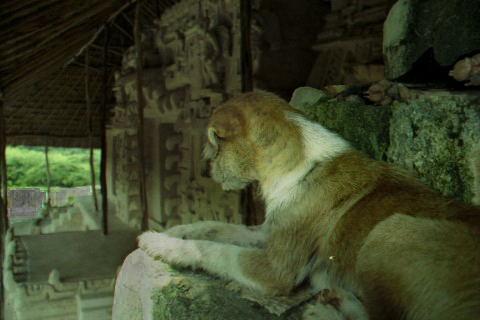WATCH THE YOUTUBE VERSION OF THIS CARD
Memory is shadowy, but sometimes it holds the seeds of new life.
Conscious reflection on the past can deepen the soul and even provide revelations of great value for the present and future. On the other hand, returning to the past obsessively out of emotional addiction can be a massive, massive draining of vitality needed for full engagement with the present. The past is not fixed or irrevocable. Memories are continually revised. Even neurologically, when memories are recalled, they are always reinterpreted based on current values and point of view. The memory is an artifact of the past that, like an antique, resonates with the past but exists in the present where it can be re-experienced and reinterpreted.
Also, occurrences in the present or future can drastically alter the meaning of the past.
For example, an alcoholic man is driving drunk. He causes an accident that maims an innocent person. While the man is blacked out from a concussion that occurs at the accident, we split the timeline so that there are two identical copies of him in two separate timelines.
The B version of him has a transcendent near-death experience, but the A version is just unconscious till he wakes up from the concussion.
The A version, which is identical until the concussion, continues his downward spiral, and his life ends in a few years due to alcohol poisoning.
The B version sees the indelible sin he committed but also the possibility of service and a spiritual warrior path. He devotes the rest of his life to helping alcoholics with recovery. His own earlier alcoholism and tragic mistake give him enormous street cred and empathy with the alcoholics he helps. They’ve all made seemingly indelible mistakes, but most have not severely maimed someone in a drunken accident.
The accident is an indelible mark in eternity. When it occurs, there is only one person, as it is just before the split. After the split, though, this past event is dramatically altered based on the future actions of persons A and B. The MEANING and butterfly effects of this identical, supposedly indelible past event dramatically differ between persons A and B. The future can alter the past.
The accident is an “indelible” mark and a turning point, beginning a cycle of change. But in A, it is a turning point toward accelerating death and darkness, while in B, it is a turning point toward life/light/love. The “indelible” event was not indelible because it was one scene in a continuing story. Since the protagonist, the conscious agent, continued, the story he wrote after that scene massively altered the nature, meaning, and consequences of the identical scene supposedly indelibly fixed in the past.
The past is still alive, but like the present or future, how we relate to it determines whether it inspires or entraps us. Consider this an auspicious time to heal your relationship to the past.
Extremely Relevant:
Adhesions and the Timelines of the Unconscious
For those of you willing to read more, a key to healing your past is to employ what I call “interpretive magic.” If, for example, events from your past were interpreted from a victim point of view in the past, it may be extremely empowering to reinterpret them as empowering lessons that helped you to learn what you needed to know to be the person you are now and to move toward the person you are becoming. Here are some thoughts on interpretive magic:
WATCH INTERPRETIVE MAGIC ON YOUTUBE
It is a common and limiting assumption that only one interpretation of an event or situation is correct. But the phenomenal world is rarely so cut and dried.
Interpretation may often be more usefully regarded as a choice rather than flattened into what is believed to be the single correct answer. For example, I recently had to send in my laptop, my only computer, for repairs. Due to some improbable mishaps, it had to be sent in two more times, and the problem that should have taken days to fix has taken weeks. An extremely reasonable and plausible interpretation is that I have been meaninglessly inconvenienced due to mechanical forces beyond my control. An alternate interpretation is that the improbable mishaps were “meant to happen,” and that I needed space to open up from a long period of laborious editing I was doing.
Which of these interpretations is most likely? The first explanation easily passes that classic test of logic, Occam’s Razor, that would have us prefer the simplest, least fancy explanation that accounts for all the facts. By contrast, the “meant to happen” point of view is often used in ways that seem glib and reeking with sentimental rationalization. Mysterious forces, or the principle of synchronicity, would have to be employed to justify this interpretation, and that means that this hypothesis is significantly fancier than the first. But in some cases of interpretation, likelihood and strict rules of logic are not the most useful when choosing among possible interpretations.
In the case of the improbably prolonged laptop repair, both interpretations are potentially valid. Instead of deciding which of these interpretations was “right,” I recognized that it was much more helpful to choose the interpretation I intuitively preferred. When I tried the first interpretation — the mechanical forces beyond my control interpretation — I found that it did nothing for me except increase stress and a sense of helpless frustration. I could feel my blood pressure rising and my jaw clenching. I realized that this interpretation adversely affected both my body and psyche. The second interpretation provided a sense of space opening up, a sense of serendipity and unexpected possibilities. By choosing the second interpretation, I entered a different timeline than I would have if I had chosen the first one. I decided to read a couple of books I probably wouldn’t have had time to read if I had access to my laptop. Some parallel realizations of my own accompanied these two books, leading to a vast, life-changing breakthrough in an area of my life that I had struggled with for decades. In this case, choosing the interpretation that felt more empowering and life-affirming seemed to lead to a much more positive outcome.
The act of consciously choosing an interpretation of an event or situation is an example of what I call “interpretive magic.” The creative interpretation of life elements is not merely a matter of passive perception.
Once you realize you have the right to interpret and reinterpret certain elements, you usually need to act on the new interpretation to establish the timeline it opens up.
The opposite of interpretative magic is fundamentalism or orthodoxy of any kind, where one’s right to interpret or reinterpret is judged by orthodoxy as sacrilege or heresy.
I have found that many people who are not overt fundamentalists fall for a similar delusion I call the “museum curator fallacy.” Such people view everything, especially things found in nature, as sacred and never to be touched or interfered with. Such museum curator types often have a hands-off attitude toward people, especially from an exotic culture, as if they were members of a Star Trek away team with an overly orthodox interpretation of the Prime Directive (cultural relativism often contributes to this blindspot). Intruding their will on anything seems to them like a sacrilege and an interference with a divine plan. They don’t recognize that they incarnated as human beings, the most interventionist organisms we know of, an attribute that is as much a part of nature as everything else.
On the other hand, there are cases where we should not apply interpretive magic. For example, when trying to solve a homicide, there is probably only one correct answer to the question: “Who was the shooter?”
Scientific methodology and interpretive magic should obviously not be mixed. If you need to create a falsifiable conclusion and test it, you don’t want to apply interpretive magic. While you may be justified in reinterpreting your personal history to transform victim consciousness, if you did this to collective history, your reinterpretation should be based on evidence, not politically convenient revisionism, etc.
Arnold Toynbee, the great historian who studied the lifecycle of civilizations, concluded that a civilization was in decline when it no longer had a ruling mythology. Your personal mythology is the aggregation of your significant choices of interpretation. Keep your interpretive choices creative and life-affirming so that you have a healthy personal mythology. If you don’t have a positive ruling mythology, then your life will be in decline.
Consider the occurrence of this card an auspicious time to boldly and creatively apply interpretative magic to some area or areas of your life.
 ZapOracle.com home to the free 720-card Zap Oracle
ZapOracle.com home to the free 720-card Zap Oracle






